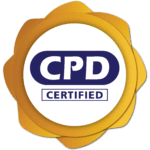



Do you want to know about anti-money laundering? Are you looking for an anti-money laundering course? But could not find out the perfect course for yourself? Think no further! We are giving you the best anti-money laundering course which was created by a unified team. In this course every aspect of topics was covered by experts.
After completing the anti-money laundering course you will gain useful skills and knowledge. Those are going to save your life from money laundering crime. Moreover, you will also learn what anti-money laundering, financial laws and many more are covered in the course.
What is anti-money laundering?
AML often known as anti-money laundering, is the process of transforming illegally obtained monies into recognized funds. Although your firm adheres to the standards. It does not follow the same AML compliance obligations as your partners and business associates. You bear the danger, especially in global trade, that the businesses or persons with whom you do business are not affected by the government's anti-money laundering legislation. Due diligence investigations on your partners, suppliers, and consumers are so critical.
Anti-money laundering three stages:
- Placement: Illicit funds are initially introduced into the legitimate financial system through placement. The aim is to place funds into a bank account or other financial institution without arousing suspicion. It can be done by depositing into multiple accounts, using money mules, or investing in assets like real estate or businesses.
- Layering: A sequence of transactions and accounting gimmicks, layering or "structuring" conceals the source of the money. This practice includes dividing the money into tiny transactions. Making the laundering process harder to identify.
- Integration: The last stage entails reintegrating the laundered monies into the normal economy, making them look to have been earned legally. The money launderer may now utilise the laundered money to acquire legitimate assets such as luxury items, real estate, or enterprises. They may also engage in complicated financial operations to mask the monies' unlawful origins. The goal is to profit from the unlawful cash while evading identification by authorities.
Following integration, the now-laundered money is removed from the authentic account and actual records to be utilised for whatever purposes the thieves deem most important.
Anti-money laundering ACT UK?
Money laundering is described under the Proceeds of Crimes Act 2002 (POCA). As any kind of dealing or holding illicit property, including owning the proceeds of one's own crime. As well as assisting any such handling or possession.
Criminal property (as defined under POCA) is property that comprises or represents a person's profit from criminal action. The accused offender is aware of or thinks that the item in issue represents such a benefit. Criminal property can take any form. Including cash or its equal, securities, physical and intangible property.
Money laundering may occur anywhere in the globe and can range from a simple act involving one person to complicated schemes involving several persons. There are no exceptions for materiality or de-minis. The 2019 Money Laundering and Terrorist Financing Regulations (MLR 2019).
These are the UK's implementation of the EU Fifth Money Laundering Directive. These include broadening the scope of the regulated sector, changes to customer due diligence, and enhanced due diligence including needrement to report discrepancies between information collected during customer due diligence and information on the Persons with Significant Control register to Companies House.
Key Takeaways
Anti-Money Laundering (AML) measures aim to make it more difficult to conceal criminal gains.
Criminals utilise money laundering to disguise the origin of unlawful payments.
Financial institutions are required by AML requirements to build sophisticated clients. Due diligence strategies in order to analyse money laundering risks and detect suspicious transactions.
Learning Outcomes
The Anti-Money Laundering course has the following learning outcomes:
-
- Comprehensive understanding of current developments. Criminals' strategies for money laundering and other financial crimes.
- Knowledge of worldwide anti-money laundering regulations and best practices. Anti-Money Laundering Act, Know Your Customer (KYC) practices, and risk evaluation are a few examples.
- Capability to detect and investigate potential money laundering activities. As well as to install effective anti-money laundering policies and procedures in your organisation.
- Competence in conducting AML investigations, including data analysis and other technologies required.
- Recognizing the link between AML and other financial crimes such as fraud, corruption, and terrorism financing.
- Understanding of the role of law enforcement and regulatory agencies in the fight against money laundering and financial crime.
- Certification is recognised by financial institutions and organisations. Providing you a competitive advantage in the job market.
Who is the Anti Money Laundering course for?
This AML Training course is appropriate for anybody who wants to learn about AML. That covers regulations and how terrorist financing works in order to safeguard their company and consumers.
-
- Ethics & Compliance Professionals
- Lawyers
- Business Owners
- AML Analysts
- Accountants & Bookkeepers
- Bankers
- Money Laundering Reporting Officer
- AML Officer
- Risk & Compliance Analyst
- Compliance Manager
Reason For Choosing Our Anti Money Laundering Course?
The course is self-paced and accessible from anywhere.
-
- High-quality study resources that are simple to understand.
- Experts in the industry created the course.
- After each module, an MCQ quiz will test your knowledge.
- Assessment results are generated automatically and instantly.
- Support is available around the clock by live chat, phone call, or email.
- You will receive a free PDF certificate as soon as you finish the course.
Requirements for Admission
This course has no requirements because it does not need any advanced knowledge or abilities. Students who want to take this course must complete the following requirements:
-
- Good proficiency in the English language
- Must be energetic and self-driven
- Basic computer knowledge
- A minimum of 16 years of age is needed
Assessment Procedure
You will get automated MCQ quizzes after finishing each module of the Teaching Assistant. To go to the next module, you must finish the quiz activity and score at least 60%. You will be eligible to obtain certification once you have completed all of the courses in this manner.
Certification
Unified Course will deliver you a Certificate of Completion once you complete this MCQ exam. It will serve as documentation of your considerable professional progress. The certificate is in PDF format and may be downloaded for free. On request, a printed version is also available. It will also be sent to you through courier for £13.99.
Career Path
This Anti-Money Laundering (AML) Training course might lead to a number of different job options. Examples include:
-
- AML Analyst
- Compliance Manager
- Money Laundering Reporting Officer
- Lawyer
The average yearly income for these employment possibilities in the United Kingdom ranges from £15,000 to £75,000 per year.
Summary
After completing our anti-money laundering course. You will gain a certificate which will help you to get a job in a bank or any other financial organisation. Moreover, you will also gain lots of skills and knowledge that are going to assist you in your workplace.
So why wait? Join our course now and make progress in your life.
Curriculum
-
- Module 01: A Quick Overview of Money Laundering 00:15:00
- Module 01 Final Quiz – A Quick Overview of Money Laundering 00:10:00
-
- Module 02: Proceeds of Crime Act 2002 00:10:00
- Module 02 Final Quiz – Proceeds of Crime Act 2002 00:10:00
- Module 03: Evolution of Anti Money Laundering Regulation 00:35:00
- Module 03 Final Quiz – Evolution of Anti Money Laundering Regulation 00:10:00
- Module 05: Risk-based Approach 00:25:00
- Module 05 Final Quiz – Risk-based Approach 00:10:00
- Module 07: Record Keeping 00:10:00
- Module 07 Final Quiz – Record Keeping 00:10:00
Price
Study Method
Online
Free Certificate
CPD Certified
Duration
3 hours, 50 minutes




